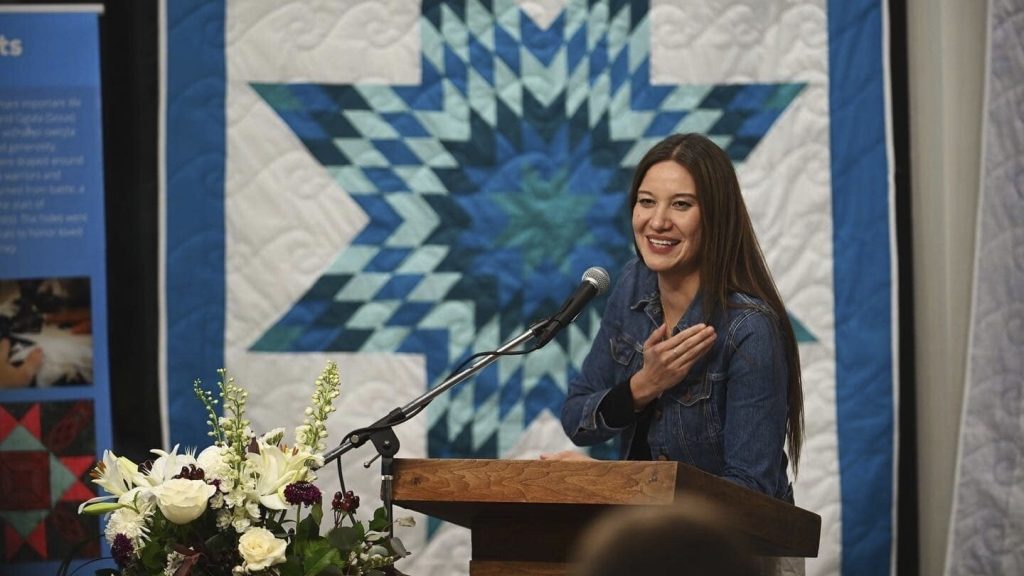A new policy in South Dakota is causing controversy as it prohibits public university faculty and staff from using gender pronouns and listing tribal affiliations in official correspondence. Two University of South Dakota faculty members, Megan Red Shirt-Shaw and her husband, John Little, received written warnings in March for including their gender pronouns and tribal affiliations in their work email signature blocks. This policy was adopted by the South Dakota Board of Regents in December and is seen as a branding and communications policy. The policy has sparked debate and concerns about erasing diversity at public universities in the state.
The policy change in South Dakota is part of a larger conservative movement to limit diversity, equity, and inclusion initiatives across the country. Similar efforts have been seen in state capitals and college governing boards, with nearly one-third of states taking action against these initiatives. While policies targeting gender pronoun use have primarily focused on K-12 students and some small religious colleges, the South Dakota policy is a potential sign of these efforts moving into public colleges and universities. Critics see this as an attempt to sanitize the realities of differences and limit transgender rights.
The American Association of University Professors has stated that they are not aware of any other public university faculty in the U.S. being required to remove their preferred pronouns in official correspondence. Faculty advocacy groups and civil rights organizations have expressed concerns about the impact of this policy on diversity and free speech. The ACLU of South Dakota has heard from faculty and students at the University of South Dakota who are worried about the new policy and is considering next steps to address it. The policy has raised questions about consultation with university administrators and tribal leaders before its adoption.
The inclusion of tribal affiliation in official university signature blocks is particularly sensitive in South Dakota due to the state’s long and violent history of conflict with tribes. Native American communities have faced erasure and suppression for centuries through warfare, assimilation, and other means. The forced removal of Indigenous children from their communities to Native American boarding schools is a stark example of this erasure. Faculty members, like Red Shirt-Shaw and Little, see the restrictions on listing their tribal affiliations as a further erasure of Native people in the state. They have adapted by including their tribal affiliation and pronouns in the body of their emails.
The policy in South Dakota has sparked debates about free speech and diversity in academic institutions, particularly at public universities. The Board of Regents, which adopted the policy, defends it as providing consistency to safeguard the brand of the universities under its umbrella. However, critics argue that the policy limits the ability to express identity and values, particularly for marginalized communities like queer Indigenous folks. The impact of the policy on faculty, students, and tribal communities in South Dakota remains a point of concern and contention, with advocacy groups and civil rights organizations monitoring the situation closely. The debate over the role of diversity, equity, and inclusion initiatives in public institutions is likely to continue as similar policies emerge in other states.


